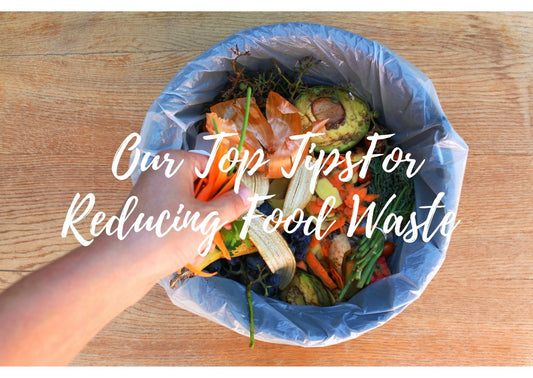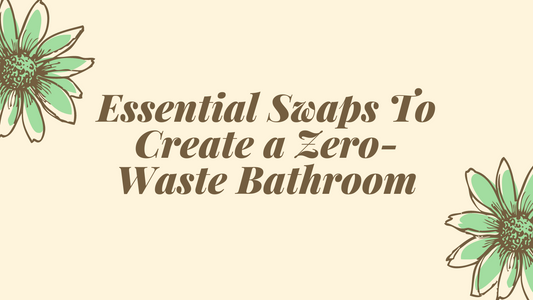
It is no secret that food waste is a huge issue globally, with around 6.7 million tonnes of food being wasted each year in the UK alone. Household food waste is a major contributing factor to this. However, by adapting and changing just a few of our daily habits, we can make a massive difference to the amount of food that gets wasted.
Here are a few of our favourite tips and tricks...
1) Planing ahead with meal prep
Planning some of your daily meals a few days in advance can help ensure you only buy the food and ingredients you need for those recipes. It can also help prevent any fresh produce being left at the back of the fridge hidden and forgotten about.

2) Cooking in bulk and using leftovers
If you are scaling down a recipe or are just left with a lot of a certain food (i.e rice, pasta), why not cook enough for several days or keep the leftovers to incorporate with something else? Get inventive! You never know what you might create!
3) Storing food correctly
By storing your fresh produce correctly, you are extending its use by date. A lot of food goes bad quickly because of improper storage conditions. Food Wax Wraps are a great reusable alternative to clingfilm or foil. They're also super useful for on the go food and packed lunches.
4) Making veg stock from veg scraps
This is one of our favourite tips! Keep vegetable scraps stored in the freezer in a tupperware box until it’s full. Add the scraps, some garlic (including the skins) and parsley to a saucepan and fill with hot water. Boil for around 30 minutes until you have a delicious vegetable broth. The broth can be stored in jars to use within 5 days, or poured into an ice cube tray to use whenever you wish.

5) Opened a bottle of wine, but couldn’t finish it? (I know, unlikely)
But if you do happen to have some leftover wine, freeze it in ice cube trays for use later to add to cooking. You can also freeze leftover herbs the same way, but in olive oil. There really are endless possibilities!

6) Composting your food scraps or using biodegradable food waste bags
For food scraps and those bits you really can’t use up, invest in a garden compost bin. As the food breaks down, you’ll create soil rich in nutrients which will help your garden plants retain moisture and protect them from disease.
If you don’t have access to a compost bin, then our biodegradable food waste bags are a great alternative. They’re made from potato starch and are strong enough to hold sufficient weight whilst being fully compostable.
Changing our small daily habits can really add up and help us make a big difference in contributing to a greener, healthier world!
By Andie Mullen




